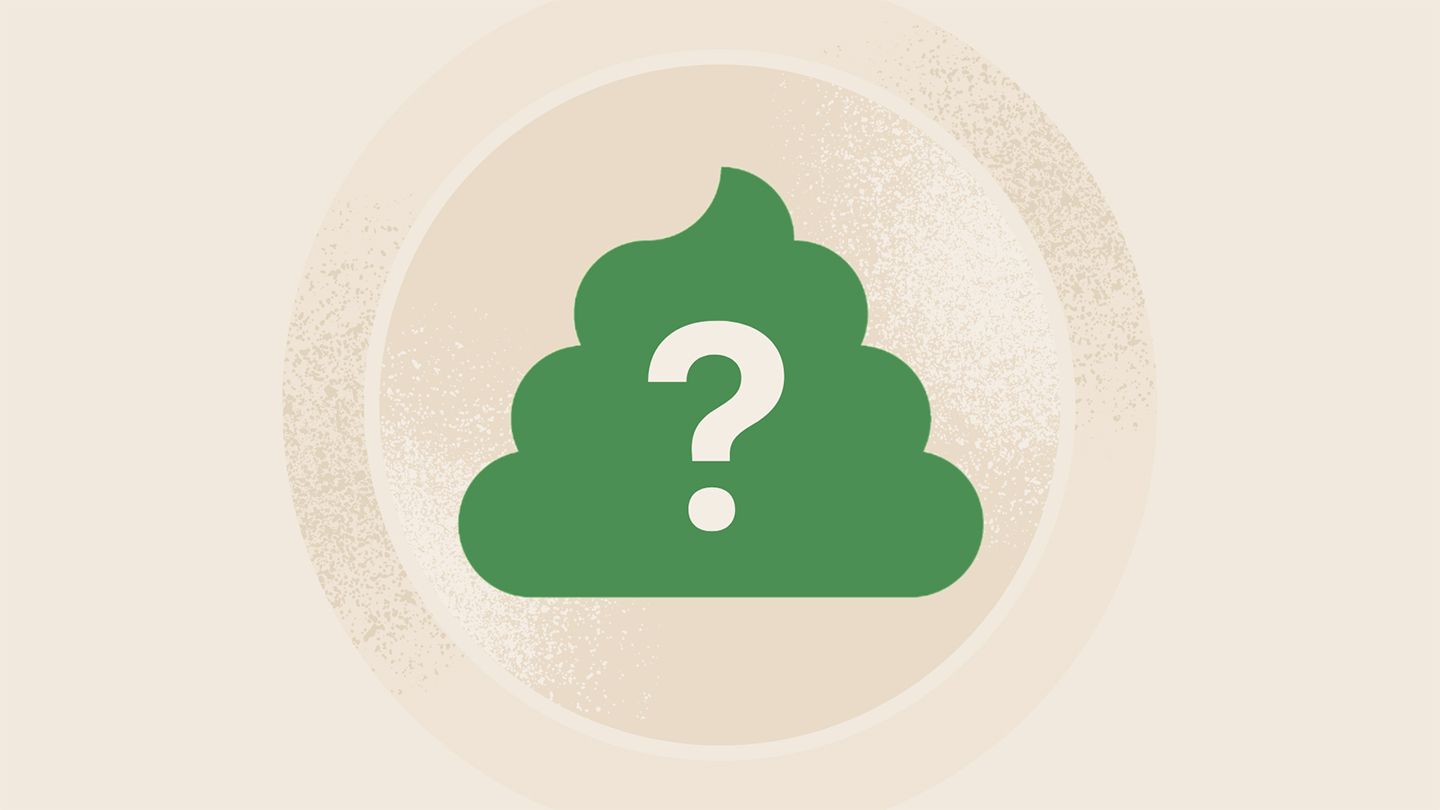
Have you ever wondered, “Why is my poop green?” In most cases, green poop is harmless and usually linked to your diet, like eating leafy greens or foods with artificial colors. However, green stool can also result from supplements, medications, or digestive changes.
What Does Normal Poop Color Mean?
Typically, stool ranges from light to dark brown. This color comes from bile — a greenish-yellow fluid that helps digest fats — which turns brown as it moves through your intestines. When stool appears green, it usually means that something has affected this process.

10 Common Reasons Your Poop Might Be Green
1. Diet High in Green Vegetables
• Eating a lot of leafy greens, like spinach, kale, and broccoli, can lead to green stool. These vegetables contain chlorophyll, the green pigment in plants, which can sometimes show up in stool.
2. Artificial Food Coloring
• Foods with green or blue coloring, like candies, sodas, or ice cream, can turn stool green. These dyes may not fully break down in digestion, leading to a noticeable color change.
3. Iron Supplements
• If you’re taking iron supplements, they can sometimes turn your stool green or even dark. Iron that isn’t fully absorbed by your body may cause this color shift.
4. Bile in Stool
• Bile is naturally green. When food moves too quickly through the digestive system — for example, during diarrhea — bile doesn’t have time to break down fully, resulting in green stool.
5. Antibiotics
• Certain antibiotics disrupt the balance of bacteria in your gut, allowing some bacteria to become more active, which can alter stool color.
6. Gastrointestinal Conditions
• Conditions like irritable bowel syndrome (IBS) or Crohn’s disease may speed up digestion, leading to green stool. If you notice other symptoms, like cramping or pain, it might be worth consulting a doctor.
7. Food Sensitivities or Allergies
• Sensitivities to gluten, lactose, or other foods can lead to rapid digestion, causing green stool. This is because the body may rush food through the system, allowing bile to stay green.
8. Infections and Food Poisoning
• Certain infections, like those caused by Salmonella or Giardia, can cause diarrhea and green stool. In these cases, stool moves quickly through the intestines, preventing bile from fully breaking down.
9. Juicing or Detox Diets
• High consumption of green juices or detox diets that include kale, cucumber, or celery can lead to green stool, as these foods are packed with chlorophyll.
10. Pregnancy
• Many pregnant individuals take prenatal vitamins rich in iron, which can turn stool green. Additionally, hormonal shifts can sometimes speed up digestion, altering stool color.
When Should You See a Doctor when your Poop turns Green?
For most people, green poop is temporary and not a cause for concern, especially if linked to diet or supplements. However, if green stool lasts more than a few days, or if you notice symptoms like stomach pain, cramping, blood in stool, or nausea, it’s best to speak with a healthcare professional. Persistent green stool or accompanying symptoms could signal an underlying condition that needs medical attention.
FAQs About Green Poop
1. How long does green poop last?
Green stool usually resolves within a day or two if it’s due to dietary changes or supplements.
2. Can stress cause green stool?
While stress itself doesn’t directly cause green stool, it can impact digestion, leading to quicker transit times, which may result in green stool.
3. Can dehydration affect stool color?
Dehydration doesn’t typically cause green stool, but it can lead to constipation and may affect the color or texture of your stool.
Note: Green Poop is Usually Nothing to Worry About
Finding green poop can be surprising, but most of the time, it’s harmless and resolves on its own. Diet, supplements, and minor digestive changes are common causes. As long as there are no additional concerning symptoms, green stool typically isn’t a problem. However, if it’s persistent or accompanied by other symptoms, don’t hesitate to reach out to a healthcare provider.
Have more questions about your health? Leave a comment or explore our other articles for more insights!







